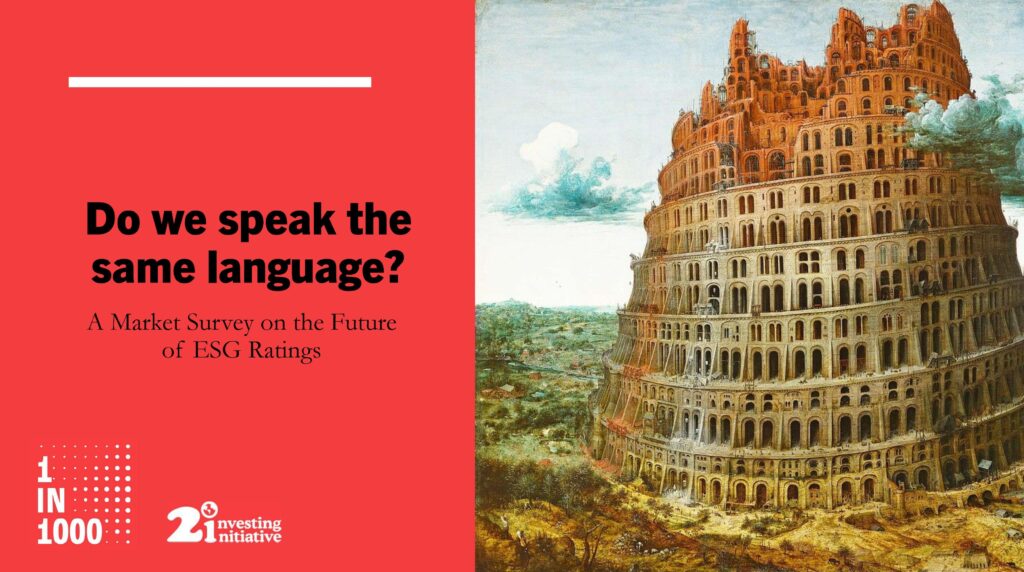There is significant disagreement amongst sustainable finance stakeholders about the value of ESG ratings, with over half saying they should be scrapped altogether, according to a pulse survey carried out by 2° Investing Initiative. 169 respondents answered the survey from 10-18 May, including roughly 50% ESG finance professionals, as well as stakeholders from the non-ESG finance, academic, research, and NGO sectors. The findings have a number of implications for regulators as ESG ratings providers have been under growing scrutiny, with Tesla’s recent removal from the S&P ESG index sparking renewed debate.
Based on the findings of the survey, any ESG ratings regulation should:
- Define whether these types of ratings should relate to sustainability risk or the sustainability footprint of a company.
- Enforce standards around the criteria related to identifying risk or sustainability drivers.
- Delineate whether a rating targets sustainability or risk objectives. This recommendation is supported by +80% of survey respondents.
- Drive ESG ratings convergence through definition of standards.
- Require that ESG scores must always when presented in marketing or communications materials also provide the individual E & S & G scores.
- Define regulatory constraints around the extent to which aggregated ESG ratings may be provided versus ratings on individual sustainability themes, similar to the work on taxonomies.
- Develop a set of standards and rules related to the right to provide ESG ratings.
Do you have questions or want to access the underlying data? Email us at contact at theiafinance.wpengine.com.
About our funder:
This research has received funding from the European Climate Foundation. Disclaimer: This work reflects 2DII’s views only, and the funder is not responsible for any use that may be made of the information it contains.




